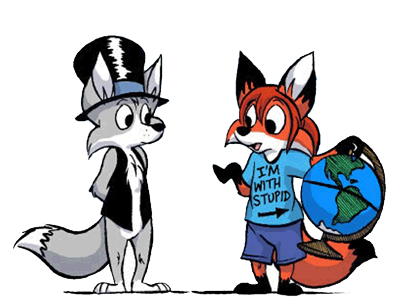Oh, but platformers with deep stories are fantastic. While I do see your point about platformers should have 'light' storylines, never confuse 'in-depth' with 'heavy'.It all depends on the type of game you're going for.
I LIKE my FPS's to look real, but I don't want to go down the street shooting up "gansta's." I want to be immersed in the game, but I want to be immersed somewhere else. I want to travel to the future, or to the distant past. I just don't want to be HERE and NOW.
For platformers I want to do the same, but not in such a realistic or immersive way. Platformers are played for the fun of playing the game. While I'll admit that some had awesome storylines, I say keep the in-depth stories for the "realistic" games. A really good example here is the Spyro series. Not too much story, but enough to make the gameplay even more fun.
RPG's are the hardest. I don't mind games like Shadowrun that are realistic, but I also loved Mario RPG (The SNES one) and, somewhat, the Final Fantasies. RPG is truly the most flexible genre, as it can encompass anything.
And sdo ends my rant, hope it was as useless as I could make it.
Take the plot to Klonoa 2: Lunatea's Veil as an example. Extremely light and frothy in form, but gorgeous metaphor for human psychology, and a beautiful structural twist where the game's structure causes something within the plot to happen which causes the gameplay to change temporarially, really ties the gameplay with the story nicely (which is the problem with most platform games with plots. And quite a few jRPGs for that matter)
Rooster - The Interactive Movie mandate actually plateued the gaming industry in it's developement as a literary medium in it's own right for about five years, causing it to try and tell stories that were better served by movies rather than stories that are well served by games. This isn't to say that stories should be limited to movies, but that games should tell stories in a fundamentally different way to the way movies tell stories, since they are at their heart interactive. The "Interactive movies" drive tended to result in games which were cut-scene heavy, and where the gameplay basically served to bridge cutscenes together.





